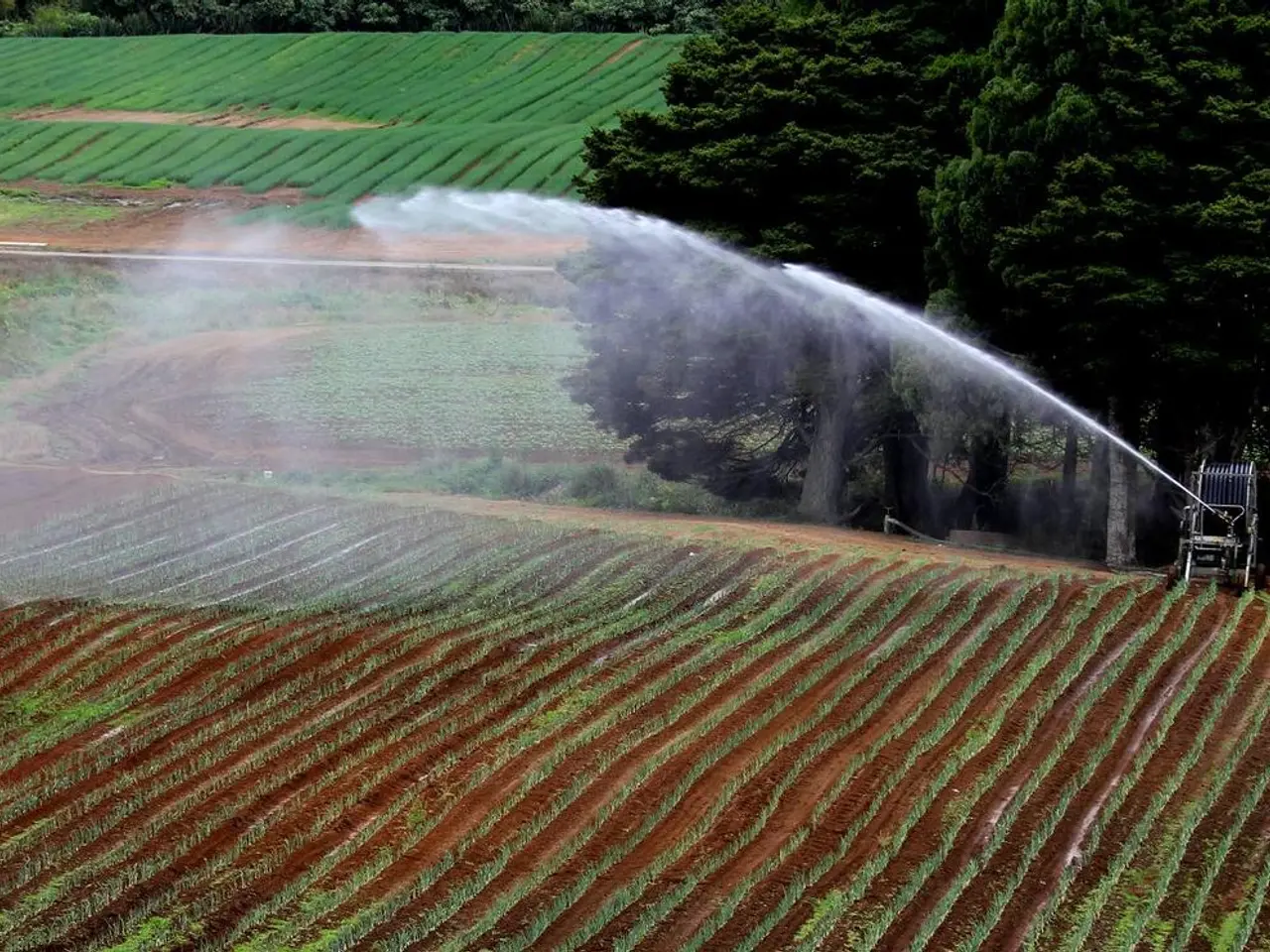AI-Driven Machinery: Bonsai Robotics takes over farm-ng, promising a revolutionary shift in crop management through the implementation of AI-focused equipment.
Bonsai Robotics and farm-ng Merge to Lead Autonomy in Adverse Agricultural Environments
Bonsai Robotics, a pioneer in autonomy for intelligent outdoor machines in challenging environments, has made a significant move by acquiring farm-ng. The merged entity aims to be the world leader in this field, with a focus on autonomous AI software for outdoor machines operating under difficult conditions.
The ag robotics industry is experiencing a boom this year, with increased acceptance and adoption of new technology, particularly in the orchard space due to labor shortages. Bonsai Robotics, based in San Jose, has had a remarkable year, deploying over 50 machines globally in the US and Australia, surpassing expectations and still having a substantial amount of runway.
Bonsai's AR 500 autonomous tractors, initially used as shuttle trucks for almonds, are now being transformed into multi-function tools for off-season tasks like spraying and mowing. These tractors boast a tighter turning radius than traditional tractors, making them ideal for navigating tight orchards.
The combined company, comprising Bonsai's software expertise and farm-ng's hardware expertise, plans to create solutions that boost efficiency and cut costs across a wider array of crops, tasks, and agricultural environments. farm-ng, based in Watsonville, CA, makes lightweight modular electric robots for a range of farming tasks, including soil preparation, planting, and harvesting.
Gary Bradski, a key figure in the evolution of computer vision and founder of OpenCV, has joined the new company as the Chief Science Officer. John Teeple, former director of technology at John Deere, has also joined as the COO. Brendan Dowdle, farm-ng's former CEO, is now the Chief Business Officer of the combined entity.
The partnership between Bonsai Robotics and farm-ng aims to control a fleet of farm-ng Amiga platforms for various farming tasks, including hand-harvesting of table grapes, using a centralized app. Bonsai Robotics deploys AI and computer vision to help nut and citrus growers in tough environments without GPS or cellular connections deploy autonomous vehicles.
The AI-powered 'Amiga' platform, targeted at small and medium-sized farming operations, is designed to tackle challenges such as uneven terrain, obstacles, and weather conditions, requiring advanced sensing, learning, and navigation capabilities. This aligns with Bonsai Robotics' mission to make autonomy and AI accessible and deployable across a wide range of agricultural equipment.
The merger underscores the need for an AI-first approach to on-farm autonomy, as labor is the primary driver of ag robotics innovation, according to FIRA USA 2024 attendees. The combined entity is poised to lead the space of autonomy in adverse outdoor environments, particularly in agriculture, with its cutting-edge technology and strategic acquisitions.
- With a focus on artificial-intelligence and autonomous AI software for outdoor machines operating under difficult conditions, the merged entity of Bonsai Robotics and farm-ng aims to be the world leader in autonomy for intelligent outdoor machines in challenging environments.
- As the Chief Science Officer, Gary Bradski, a key figure in the evolution of computer vision and founder of OpenCV, will play a significant role in the combined entity's technological advancements.
- Investing in the ag robotics industry, particularly in companies like Bonsai Robotics that are experiencing a boom, could provide lucrative returns for those interested in business and finance.
- Education and self-development in computer vision, machine learning, and robotics could prove beneficial for those seeking career development and skills training in the rapidly growing field of autonomy for outdoor machines.
- The combined company aims to create solutions that boost efficiency and cut costs across a wider array of crops, tasks, and agricultural environments, potentially revolutionizing the sports of American football, such as the NFL and NCAA football, by implementing similar technologies to optimize player performance and minimize injuries.
- The AI-powered 'Amiga' platform, designed for small and medium-sized farming operations, not only addresses challenges faced in agriculture, but also could potentially be implemented in other industries that require advanced sensing, learning, and navigation capabilities, such as sports entertainment technology.




